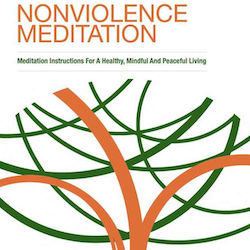Have you fallen into a trap of deciding which diet recommendations to trust and follow?
We are bombarded with articles, expert advice and celebrity endorsements, yet it seems that everyone just quite a few miles away from each other on terms of agreeing on fundamental principle – how much carbs, protein and fat you should consume on a daily basis to be healthy and maintain weight. Knowing that alcohol is calorific, but doesn’t carry much weight in terms of these elusive carbs, protein or fat for that matter (even though the amount of calories per gram is 7, which is higher than sugar, which ‘weights’ 4 calories per gram). So what shall we do with it?
I can only vouch for things that work. In the beginning of my journey to getting rid of being overweight, I have tried a method, which consisted of drinking a lot of water, following a calorie controlled diet, doing quite a lot of exercise and also following a healthy sleep pattern. This whole thing helped me a lot as I have lost a couple of stone in a quarter when I was in my early 20s!
For those who want to check it out, just have a look at the bestselling book called A Flat Stomach ASAP: The Look You Want in Just Six Weeks, where Ellington Darden argues that the ideal ratio for carbs/protein/fat content is 60/20/20.
I am also a believer in the fact that there is no diet that fits everyone. Most probably the above method worked really well with me as I was much younger. I am now not too sure that 60% carbs in my daily consumption is a good idea – it is way too high! If you think about it – you are advised not to eat starchy and rich in gluten carbs, and definitely not much sugar, so you are left with some lighter to your gut gluten free carbs, but whole 60% of them for the whole day?! Would you think that a cheeseburger that has a lot of carbs (a gigantic bun), some greasy fats from bacon and sauces, and a lot of fried red meat (putty) is your everyday healthy meal? I don’t think so!
As you may know, I do not have a scientific degree in nutritional sciences, I am more of a self-taught cook and healthy eater, so I wanted to get more information and preferably from the sources that I would trust – from people who learnt all this from their experience working in kitchens, accumulating research from different sources and making use of it. I stumbled upon a book that has a bit strange name, but offered just what I needed – Nutritional Grail: Ancestral Wisdom, Breakthrough Science, and the Dawning Nutritional Renaissance. This book was written by Christopher James Clark who is also not a scientist or has a degree in nutritional studies, but put quite a few years into researching both scientific and practical sources and making them work as guidelines.
He stated that,
a) there is no harm in eating healthy fats found in virgin olive oil, coconut oil and natural sources of it like rich in omega-3 fish (don’t we all take some fish oil supplements here in the UK?), so we can increase this content without thinking of getting fat from eating foods that are naturally fatty but organic and healtrhy (avocado, nuts). Afterall, nobody says it should go above 30-40%;
b) that protein was somehow left out with the 20% recommended ratio even though protein is a very healthy way to aid to muscle growth and thus keep your body toned and healthy. He qadded that by increasing your protein intake to 30-40% (double the previous recommendation) and insuring your carbs are low in GI (think gluten free, wholemeal, rich in fibre) will aid to your well-being greatly. Protein should preferably be from either fish or white meat (poultry or lean pork), but always think organic and grass-fed for the best results.
Follow me on this course of transforming your eating habits and incorporating a low-carb diet that is protein-rich, full of healthy natural fats and low in GI carbs that do not make your feel bloated (gluten free, some healthy fibre and also organically sourced). When it comes to wine, it is good to consume it in moderation and with food (it binds perfectly with proteins) and drink a lot of water (think a glass of water per a small one of wine).
One last note to support this claim is to look at centenarians – the largest percentage of them live on Mediterranean island of Corsica, where they consume mostly fish with vegetables, occasionally game, and always have a glass of red with their meal. Check ‘How to live to be 100+’ TED talk here, it is quite an exciting watch!
Please let me know your comments and thoughts about healthy wine lifestyle, and share your experience with I Blame The Wine community as well.
Cheers!




